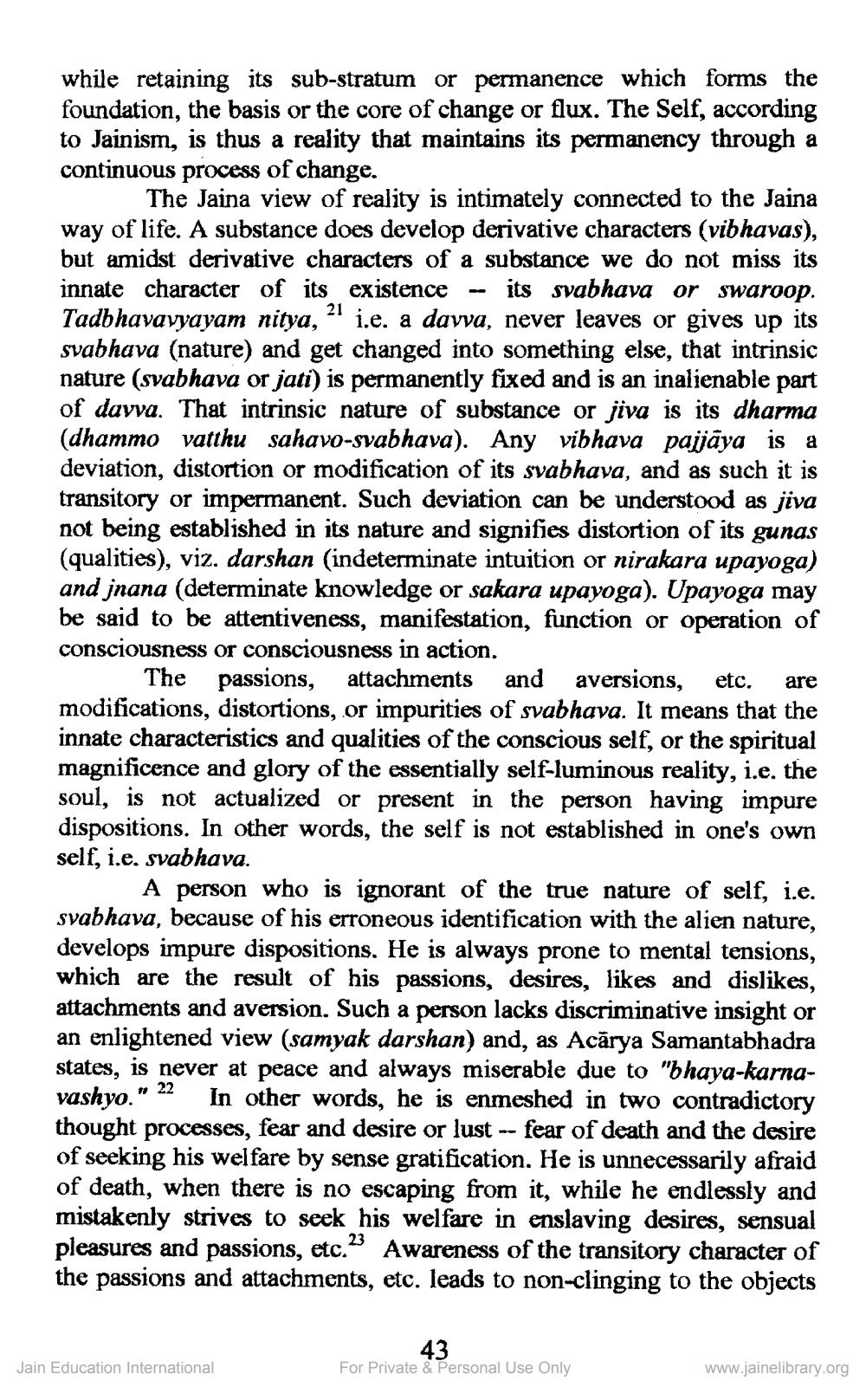________________
while retaining its sub-stratum or permanence which forms the foundation, the basis or the core of change or flux. The Self, according to Jainism, is thus a reality that maintains its permanency through a continuous process of change.
The Jaina view of reality is intimately connected to the Jaina way of life. A substance does develop derivative characters (vibhavas), but amidst derivative characters of a substance we do not miss its innate character of its existence - its svabhava or swaroop. Tadbhavavyayam nitya, . i.e. a davva, never leaves or gives up its svabhava (nature) and get changed into something else, that intrinsic nature (svabhava or jati) is permanently fixed and is an inalienable part of davva. That intrinsic nature of substance or jiva is its dharma (dhammo vatthu sahavo-svabhava). Any vibhava pajjāya is a deviation, distortion or modification of its svabhava, and as such it is transitory or impermanent. Such deviation can be understood as jiva not being established in its nature and signifies distortion of its gunas (qualities), viz. darshan (indeterminate intuition or nirakara upayoga) and jnana (determinate knowledge or sakara upayoga). Upayoga may be said to be attentiveness, manifestation, function or operation of consciousness or consciousness in action.
The passions, attachments and aversions, etc. are modifications, distortions, or impurities of svabhava. It means that the innate characteristics and qualities of the conscious self, or the spiritual magnificence and glory of the essentially self-luminous reality, i.e. the soul, is not actualized or present in the person having impure dispositions. In other words, the self is not established in one's own
svabhava.
A person who is ignorant of the true nature of self, i.e. svabhava, because of his erroneous identification with the alien nature, develops impure dispositions. He is always prone to mental tensions, which are the result of his passions, desires, likes and dislikes, attachments and aversion. Such a person lacks discriminative insight or an enlightened view (samyak darshan) and, as Acārya Samantabhadra states, is never at peace and always miserable due to "bhaya-karnavashyo." 22 In other words, he is enmeshed in two contradictory thought processes, fear and desire or lust -- fear of death and the desire of seeking his welfare by sense gratification. He is unnecessarily afraid of death, when there is no escaping from it, while he endlessly and mistakenly strives to seek his welfare in enslaving desires, sensual pleasures and passions, etc.” Awareness of the transitory character of the passions and attachments, etc. leads to non-clinging to the objects
43 For Private & Personal Use Only
Jain Education International
www.jainelibrary.org




